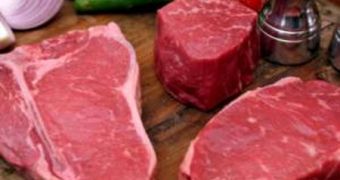The Sustainable Agriculture Initiative has released a new set of guidelines intended to make the practice of raising cattle for meat a tad more environmentally friendly.
Companies such as McDonald's, Nestlé and Unilever, who are all members of the Initiative, explain that, for the time being, beef production contributes greatly to climate change and global warming.
This is because this industry has a fairly large carbon footprint. What's more, it uses a lot of water and energy on a yearly basis, not to mention the fact that it has been documented to affect both soils and biodiversity in several regions.
According to Business Green, the 39 guidelines that the Sustainable Agriculture Initiative made available to farmers last week all boil down to sustainability, and are intended to tackle all of the aforementioned issues.
Thus, farmers are asked to keep a close eye on individual animals and feedstocks, water and energy use, and greenhouse gas emissions.
“The introduction of the Principles will help move towards the production of safe, high quality beef, in a way that protects and improves the natural environment, the social and economic condition of farmers, their employees and local communities and safeguards the health and welfare of beef cattle,” the Sustainable Agriculture Initiative writes in a press release.
Furthermore, “The Principles are designed for global application, for both developed and emerging nations, and apply to mainstream producers in all areas of the world.”
Interestingly enough, the Initiative promises that, now that it has rolled out these guidelines, it will start work on a set of so-called practices intended to make it easier for farmers to implement and abide by the principles for sustainable and eco-friendly beef production. Presently, it is unclear when this set of practices will hit the public eye.
Truth the told, some environmentalists out there would much prefer it if humans were to quit eating beef and the like altogether, and turn to gulping down proteins from insects and worms instead.
Still, as Keith Kenny with McDonald’s Europe points out, beef is an “iconic” food in many countries, and greening it up is, for the time being at least, way easier to do than trying to phase it out.

 14 DAY TRIAL //
14 DAY TRIAL //